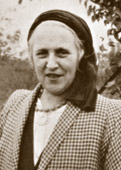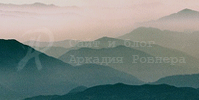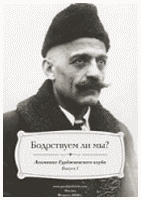Jeanne Matignon de Salzmann

Jeanne Matignon de Salzmann, née Jeanne Allemand, frequently referred to as Madame de Salzmann was born in 1889. She studied piano, orchestral conducting and composition at the Conservatory of Geneva.
In 1912 she began studying with Emile Jacques-Dalcroze in Germany, and subsequently she taught dance and rhythmic movements. She met her husband Alexandre de Salzmann at Dalcroze’s School in Hellerau, Dresden. After the Russian revolution she and her husband moved to Tiflis, Georgia where she continued to teach. In 1919 Thomas de Hartmann introduced the de Salzmanns to Gurdjieff, with whom they became affiliated up until the latter’s death in 1949. Madame de Salzmann worked with Gurdjieff for almost 30 years.
Many of Gurdjieff’s other pupils recognized her as his deputy. In December 1949, together with Henriette H. Lannes, Jane Heap and John Bennett she initiated the beginning of the continuation of Gurdjieff’s work. With her help the Society for Research into the Development of Man Ltd. Was founded on 6 October, 1955. Subsequently, on 17 June 1957 it was changed to The Gurdjieff Society, Ltd. The organization was led by Madame de Salzmann, who continued Gurdjieff’s teachings until her death on 25 May 1990 at the age of 101.
She was greatly responsible for transmitting Gurdjieff’s movements and teachings through the Gurdjieff Foundation of New York, the Gurdjieff Institute in Paris and numerous other groups around the world. Her aim was to preserve the inner meaning and content of the Movements. Her son, Michel de Salzmann, who was born on 1923, took the leadership of her organization, running it until his death in 2001.
From the “First Initiation”
“You will see that in life you receive exactly what you give. Your life is the mirror of what you are. It is in your image. You are passive, blind, demanding. You take all, you accept all, without feeling any obligation. Your attitude toward the world and toward life is the attitude of one who has the right to make demands and to take, who has no need to pay or to earn. You believe that all things are your due, simply because it is you! All your blindness is there! None of this strikes your attention. And yet this is what keeps one world separate from another world”.
“Yes, your “appreciation of yourself” blinds you. It is the biggest obstacle to a new life. You must be able to get over this obstacle, this threshold, before going further. This test divides men into two kinds: the “wheat” and the “chaff.” No matter how intelligent, how gifted, how brilliant a man may be, if he does not change his appreciation of himself, there will be no hope for an inner development, for a work toward self-knowledge, for a true becoming. He will remain such as he is all his life“.
From “Reality of Being”
“There is in me an essential energy that is the basis of all that exists. I do not feel it because my attention is occupied by everything contained in my memory—thoughts, images, desires, disappointments, physical impressions. I do not know what I am. It seems that I am nothing. Yet something tells me to look, to listen, to seek seriously and truly. When I try to listen, I see that I am stopped by thoughts and feelings of all kinds. I listen poorly; I am not quiet enough to hear, to feel. What I wish to know is more subtle“.
“Everything is a question of forces. Our existence, our Presence here below, is also a question of forces. Nothing belongs to us, nothing is ours. We are here either to transmit forces or to transform them if we understand how. It is necessary first to feel these forces in a distinct way, to feel each in itself, and then to feel them together in order to create a new force able to confront the others, able to last, able to be“.
“In the Gurdjieff Movements, which can show a new quality of action, the tempo is given and we have to submit to it. In our own work, we ourselves need to find the right tempo and then equally submit to it. Otherwise the work will not transform us. I need to feel that my body and my thought have equal participation, the same force, the same intensity. Then the sensation of the energy contained in the body can be stronger than the sensationof the body itself. I can follow the movement. “I am” in movement“.






